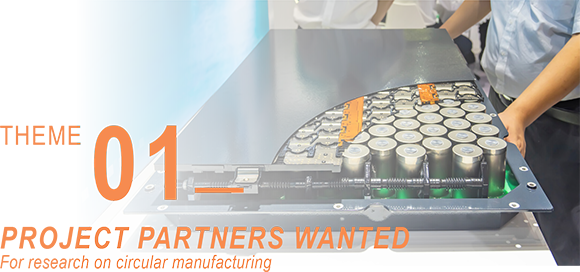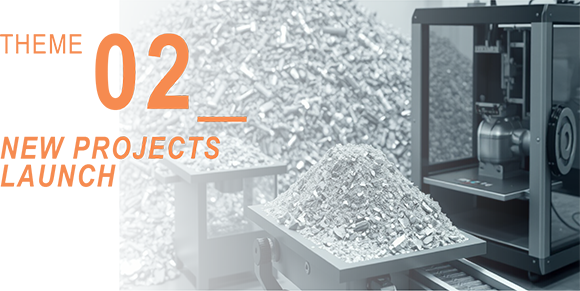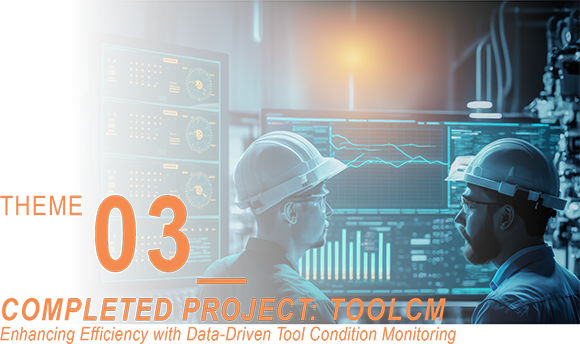ADVANCED MANUFACTURING PROGRAM
Powered by: Regio Deal Twente
The Fraunhofer Innovation Platform for Advanced Manufacturing (FIP-AM), together with the regional government and partners, has developed the Advanced Manufacturing Program (AMP) to create a transition framework to Manufacturing 4.0 and to strengthen the industry in the east of the Netherlands.
The Advanced Manufacturing Program (AMP) provides subsidies through the RegioDeal, supported by the Province of Overijssel and the Dutch State. The aim is to stimulate the rapid development of Twente and other regions in The Netherlands by creating an Advanced Manufacturing hub with an outward-looking, European image.
In this way, the AMP strengthens the reputation and climate of the region. Within the AMP, the Fraunhofer Innovation Platform is developing innovation projects in the field of production technology together with the University of Twente.
Each AMP project is built around a solid industrial collaboration. During the project, the companies will have access to relevant knowledge and the latest technological and industrial methodologies. These can be shared with other high-tech manufacturing companies in the region via the hub.
The companies that are members of the AMP can solve their specific technological problems and answer market-oriented questions. This is done by developing and creating demonstrators with direct technological insight. FIP-AM then works through workshops and master classes on the dissemination of this newly acquired knowledge.
The Advanced Manufacturing Program (AMP) is a grant program that helps us support your transformation to Industry 4.0. This is made possible by the RegioDeal, supported by the Province of Overijssel and the Dutch State.

The Circular Manufacturing Systems Program (CMSP), managed by the Fraunhofer Innovation Platform at the University of Twente, focuses on enhancing sustainability and efficiency in energy storage for example in batteries.
We invite companies to engage with the program, whether by participating in existing use cases or proposing new ones.

This initiative tackles key challenges in recycling, repurposing, and eco-design, aiming to revolutionise energy storage practices. If you have a use case or are interested in collaboration, we would love to hear from you. Please contact FIP-AM@UT to explore how you can be part of this transformative program and drive sustainable innovations in energy storage.
Interested in contributing or exploring potential use cases? Engage with us to advance sustainable battery manufacturing practices.

Despite the ending of the Advanced Manufacturing Program in 2024, new projects are still being launched. The latest two, EcoCup and CamCraft, aim to improve environmental practices in manufacturing. EcoCup focuses on enhancing the efficiency and sustainability of aluminium coffee cups by using recycled materials and advanced modelling techniques to improve design and reduce environmental impact.
CamCraft explores converting metal scrap into powder for Additive Manufacturing using Powder Bed Fusion technology. By validating the use of recycled metal powder for non-precision parts, CamCraft promotes upcycling and reduces reliance on virgin materials.
Both projects aim to advance eco-friendly manufacturing processes and contribute to circular economy initiatives, supporting more sustainable industrial practices.
Interested in this project? Please contact us for more information.
ToolCM is a completed project focused on developing a data-driven model to detect cutting tool wear, improving production efficiency for machine component manufacturers. Developed in collaboration with Fraunhofer Innovation Platform for Advanced Manufacturing at the University of Twente and industry partners Hankamp Gears, Zuidberg, and Holga Metaaltechniek, ToolCM used real-time sensor data from milling and gear hobbing machines to predict the Remaining Useful Lifespan (RUL) of tools.

The project created a user-friendly dashboard that provides early warnings for tool replacement, helping prevent costly downtime and improve resource management. The dashboard monitors up to 15 variables, such as temperature and drive loads, and evaluated over five months of production data. ToolCM has proven a valuable support to operators in making informed, proactive maintenance decisions.
Due to this success, all consortium partners decided to follow up this project and further develop the implementation and integration of this solution into their own production environments.
For the follow-up project, the conversations have already started, but we still have available spots in the new consortium! Contact us to learn more!
More information about our projects?
Please contact us.

